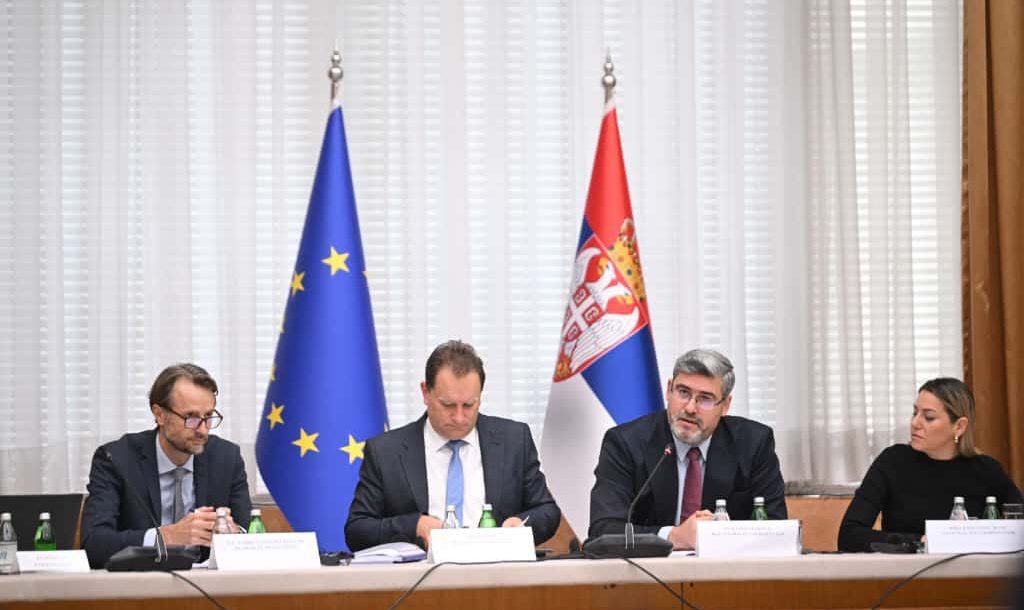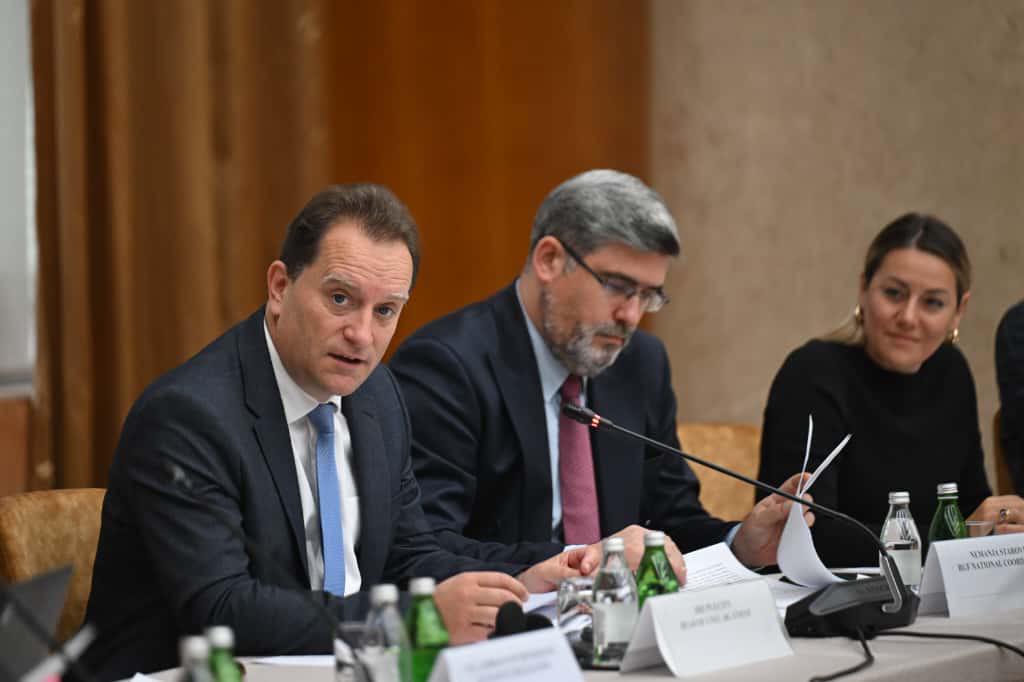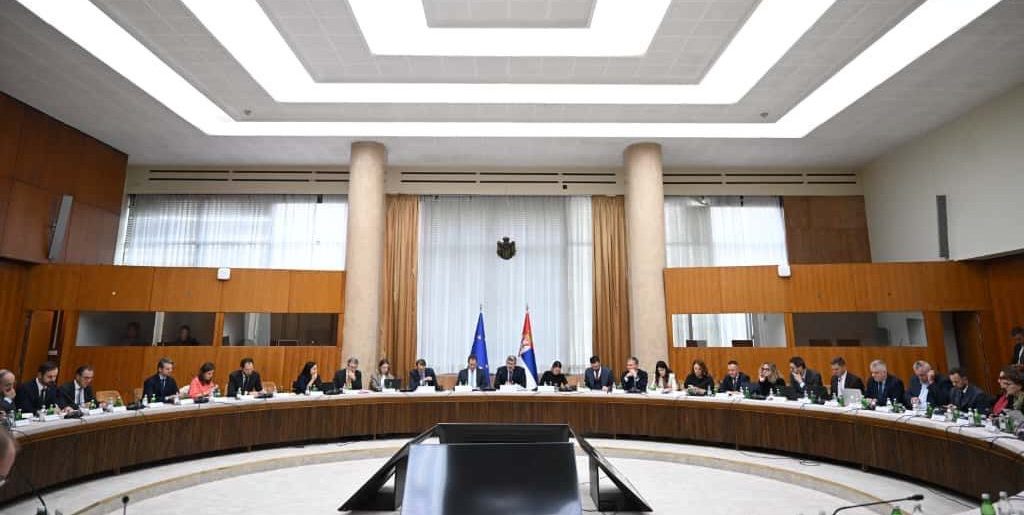Representatives of the Government of Serbia and European Union held the first meeting of the Monitoring Committee of Instrument for Reforms and Growth, a key element of the Growth Plan for the Western Balkans.
The committee was formed to monitor implementation of key reforms and fulfillment of goals defined by the Reform Agenda of Serbia, which includes reforms in the areas of economy, digitization, green transition, education and the rule of law.
Meeting was jointly chaired by the Minister for European Integration Nemanja Starović and Jiri Plecity, head of the unit in charge of Serbia within Directorate for Enlargement within the European Commission; Andreas von Beckerath, Ambassador of European Union to Serbia, along with representatives of the institutions and Government of Serbia, representatives of European Commission, member states of European Union, international organizations and financial institutions, as well as representatives of civil society gathered in the National Convention for the EU (NCEU) also participated.
“The reform agenda is not only a technical process but an instrument for strengthening democracy and the rule of law, protecting media freedoms, better public services, new jobs and a better standard of living for all citizens of Serbia. This is the essence of the Reform Agenda and the Growth Plan and promise that Serbia gave to its citizens on the way to European Union”, stated Jiri Plecity, head of the unit in charge of Serbia within Directorate for Enlargement within the European Commission.
He added that “European Union will continue to support Serbia on this path, together with member states, international financial institutions and civil society, because only by working together can we ensure transparency and real changes”.
Minister Nemanja Starović stated that the Growth Plan for Western Balkans and the implementation of the Reform Agenda of Serbia represent an opportunity to speed up the process of Serbia’s accession to European Union through the modernization of the state and society, the strengthening of legal security and the attraction of investments.
“Government of Serbia is committed to joining the EU, as its strategic foreign policy goal. Implementing the activities foreseen in the Reform Agenda is one of the ways in which we strive to speed up the process of European integration and thereby provide citizens with concrete benefits as soon as possible,” minister emphasized.
He thanked the European Union, which within the framework of the Instrument for Reforms and Growth for the Western Balkans, allocated a total of 1.58 billion euros in the period from 2024 to 2027 to support reforms in Serbia.
These funds represent the beginning of realization of the total financial support that European Union intends for Serbia as part of the Growth Plan, with the aim of encouraging economic development and better integration of the region into the Single European Market.
NKEU representatives emphasized that their participation in the Committee ensures transparency in the implementation of the Reform Agenda and adequate communication with citizens, protecting their right to know how the funds intended for Serbia are used.
Civil society underlined that goal of the Reform Agenda is to support democratic governance, rule of law and sustainable socioeconomic development, and they insisted that reforms be fully and faithfully implemented, with timely information to the public about progress and challenges.
Participants of the meeting considered the progress so far and the next steps in development of private sector as well as business environment, green and digital transition, human capital, and fundamental rights and the rule of law.
The newly formed committee will also monitor implementation of projects that will be financed from the Instrument through the Investment Framework for Western Balkans, which supports large infrastructure and development projects, such as railway modernization, energy efficiency and environmental protection.
The Committee also represents an important platform for joint work on transparent and efficient implementation of the Reform Agenda, that is, cooperation between the institutions of Serbia, the European Commission, civil society organizations, EU member states, international financial institutions and other actors.






